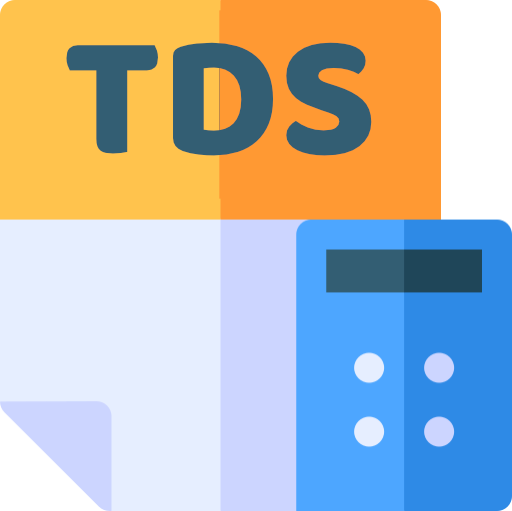Overview of Professional Tax
Professional tax (PT) is an indirect tax imposed and collected by state governments in India, and it is mandatory for states where it is applicable. The purpose of this tax is to contribute to the funding of state government welfare programs that facilitate the smooth operation of various professions. It's applicable to a wide range of occupations, employment, and trades. Each state in India has its unique rules and procedures for the assessment and collection of PT. In essence, the tax rates vary from one state to another.
Legal Framework for Professional Tax (PT)
As stated in Article 246 of the Constitution of India, the Parliament has the sole authority to legislate and make guidelines on income tax. However, for the imposition of specific taxes, State governments have the authority to create legislation that includes this tax. Article 276 of the Indian Constitution grants States the power to formulate legislation governing this tax as a state-level tax.
Professional Tax Applicable States
The states where PT is applicable are as follows;
- Karnataka
- Bihar
- West Bengal
- Andhra Pradesh
- Telangana
- Maharashtra
- Tamil Nadu
- Gujarat
- Rajasthan
- Assam
- Kerala
- Meghalaya
- Odisha
- Tripura
- Madhya Pradesh
- Jharkhand
- Chhattisgarh
- Sikkim
- Mizoram
- Manipur
- Punjab
- Puducherry
As mentioned earlier, the regulation and imposition of this tax varies in each state. It is crucial to refer to the official government website of the specific state or seek guidance from a qualified professional for the most up-to-date and accurate information regarding PT in a given state.
Categories for Professional Tax Registration
It is a mandatory tax that professionals are required to pay, contributing to the funding of state governments. To fulfill their tax obligations, taxpayers may obtain two categories of certificates, which are as follows:
- 1.Professional Tax Registration Certificate (PTRC): This registration must be obtained by the employers who are required to deduct and remit PT to the state government on behalf of the employees. The employer has to deduct this tax from the salary of the employee. Under PTRC registration, the tax is deducted on a monthly basis.
- 2. Professional Tax Enrollment Certificate (PTEC): registration must be obtained by business owners, companies, partnership firms, sole proprietors, freelancers, service providers, and professionals such as lawyers, doctors, CAs, CSs, etc., to pay their taxes directly to the state governments. Under PTEC registration, the tax is deducted annually.
Who Requires Professional Tax Registration?
Individuals and entities subject to this indirect tax may include:
- 1. Chartered Accountants (CA)
- 2. Service Providers
- 3. Technical or Professional Consultants
- 4. Business Owners
- 5. Contractors
- 6. Engineers
- 7. Co-operative Societies and Associations
- 8. Insurance Agents
- 9. Lawyers and Legal Practitioners
- 10. Freelancers
- 11. Sole Proprietors
- 12. Limited Liability Partnerships (LLP)
- 13. Doctors
- 14. Companies registered under the Companies Act, 2013
- 15. Management Consultants
- 16. Hindu Undivided Family (HUF)
- 17. Medical Representatives
- 18. Tax Consultants
- 19. Architects
- 20. Company Secretaries (CS)
Who Governs/Administers Professional Tax Collection?
PT collection is governed by the Commercial Tax Department of the specific state where the tax is applicable.
Who is liable to collect professional tax?
The liability to collect the above-mentioned tax primarily falls on employers. It is the responsibility of the employers to deduct PT and remit it to the state government on behalf of the employee by deducting tax from the employee's wages or salary.
On the other hand, self-employed individuals, including business owners, companies, partnership firms, sole proprietors, freelancers, service providers, and professionals such as lawyers, doctors, CAs, CSs, etc., are responsible for paying their taxes directly to the state governments where PT is mandatory.
Benefits of Obtaining PT Registration
PT Registration offers several benefits, including:
- Compliance Burden:PT Compliance is straightforward, resulting in a streamlined registration process with minimal restrictions.
- Penalty Avoidance:Adhering to the legal requirement of paying PT in a timely manner can help prevent penalties and punitive actions against both employers and self-employed individuals.
- Registration Process:The simple and easy registration process makes it effective, as each state has its own registration process for PT registration
- Helps in Supporting Welfare Initiatives:This tax shall considered as a source of revenue for state governments as it enables them to conduct a wide range of development programs and welfare initiatives.
- Grants eligibility to get deduction: employers and self-employed professionals can claim a deduction on any advance PT paid, which ultimately provides them some tax relief.
What are the Documents Needed for Professional Tax Registration?
The following is the list of the documents required for PT registration;
- Certificate of Incorporation (COI)
- Articles of Association (AOA)
- Memorandum of Association (MOA)
- PAN (Attested by the Director)
- Address and ID proof for all directors
- All Directors of passport-size photographs
- Bank Details of Company
- Board Resolution
- Proof of Registered Office ( it may include a Lease Agreement, Rent Agreement, or No Objection Certificate from the owner)
- Declaration of Consent
- Salary Registrar
- Attendance registers,if required
1. Completed Application Form
2. For Companies:
1. Partnership Firm
How to Register for Professional Tax?
It's crucial to understand that the PT registration process varies in each state where PT is applicable. Most of these states offer an online PT registration procedure on their official websites. Both employers and professionals seeking PT registration need to adhere to the following registration procedure:
- Step 1:Application Submission with Required Document on the specified state government's official website for PT registration
- Step 2:Application Submission to the Relevant State Government and Tax Department
- Step 3:Examination by Tax Authority
- Step 4:Issuance of Registration Certificate
How to pay Professional Tax?
The process of remitting this tax is contingent upon the regulations of the particular state, as it is a tax imposed at the state level. Generally, payment can be made through both online and offline channels. To initiate the payment, you should access the official website of your respective state's tax department.
Professional Tax Slab/Rate
PT rates differ from state to state and are primarily determined by an individual's income level. For instance, in Maharashtra, the PT rate varies between INR 175 and INR 300 per month, contingent on the individual's income or earnings. Conversely, in Karnataka, the tax rate is fixed at INR 200 per month for salaried individuals. It is to be noted that the PT rates may be subject to change periodically by the respective state government.
Maximum Amount for Professional Tax
Although PT is computed according to an individual's income, several states have set a maximum limit on the yearly tax amount. This ceiling is applicable to both salaried employees and other professionals. In the majority of states, the highest annual PT payable under PTEC and PTRC is limited to Rs. 2,500.
Due Dates for Professional Tax
PT due dates are subject to variation from one state to another, as each state establishes its own distinct deadlines for payment and return submission. For PTRC holders, this tax is typically paid on a monthly basis, deducted from employees' salaries, and subsequently remitted to the state government.
On the other hand, individuals under the purview of PTEC have their tax deducted annually from their income. The due date for payment usually falls after the 31st of March, which signifies the conclusion of the financial year.
Legal Consequences for Non-Registration of PT
If you meet the eligibility criteria but neglect to apply for registration under PTEC and PTRC, you may face the following consequences as stipulated in the state's PT legislation:
- Penalty for Not Registering PTEC/PTRC on Time
- Interest on Delayed Tax Payments
- Late Fee for Failure to Pay Tax Promptly
- Penalty for Late Filing of PTEC/PTRC Returns
For instance, in Maharashtra, the penalties for delayed registration are as follows:
- A penalty not exceeding Rs. 20/- for each day of delay for employers (PTRC).
- A penalty not exceeding Rs. 5/- for each day of delay for others (PTEC).
Furthermore, if a taxpayer submits their return within thirty days after the prescribed filing deadline, a late fee of Rs. 200/- (Rupees two hundred) is applicable. Beyond this timeframe, the late fee increases to Rs. 1000/- (Rupees One Thousand). This amount is in addition to any tax owed according to the return. In cases of late tax payment, PT penalties amount to 50% of the outstanding tax due. Please note that the precise penalty amounts and regulations may vary from one state to another. Therefore, it is advisable to consult the PT laws of your respective state for accurate and current information regarding non-compliance penalties.
Please note that the precise penalty amounts and regulations may vary from one state to another. Therefore, it is advisable to consult the PT laws of your respective state for accurate and current information regarding non-compliance penalties.
Who is Exempted from PT?
Although this tax is mandatory, tax is to be paid by individuals and firms engaged in any sort of employment, trade, profession, etc. However, there are certain individuals who are exempted from PT. It is worth noting that the exemption criteria vary from PT applicable state to state. The details of the exempted individuals for payment PT are mentioned below;
- Armed Forces Members such as the Army, Navy and Air Force
- Individuals having physical or mental disabilities such as deaf, blind, etc.
- Badli Workers, also known as manufacturing workers
- Individuals operating a school
- Foreign nationals working in PT applicable states
FAQs
It is an indirect tax imposed and collected by state governments in India, and it is mandatory for states where it is applicable.




.png)
.png)




